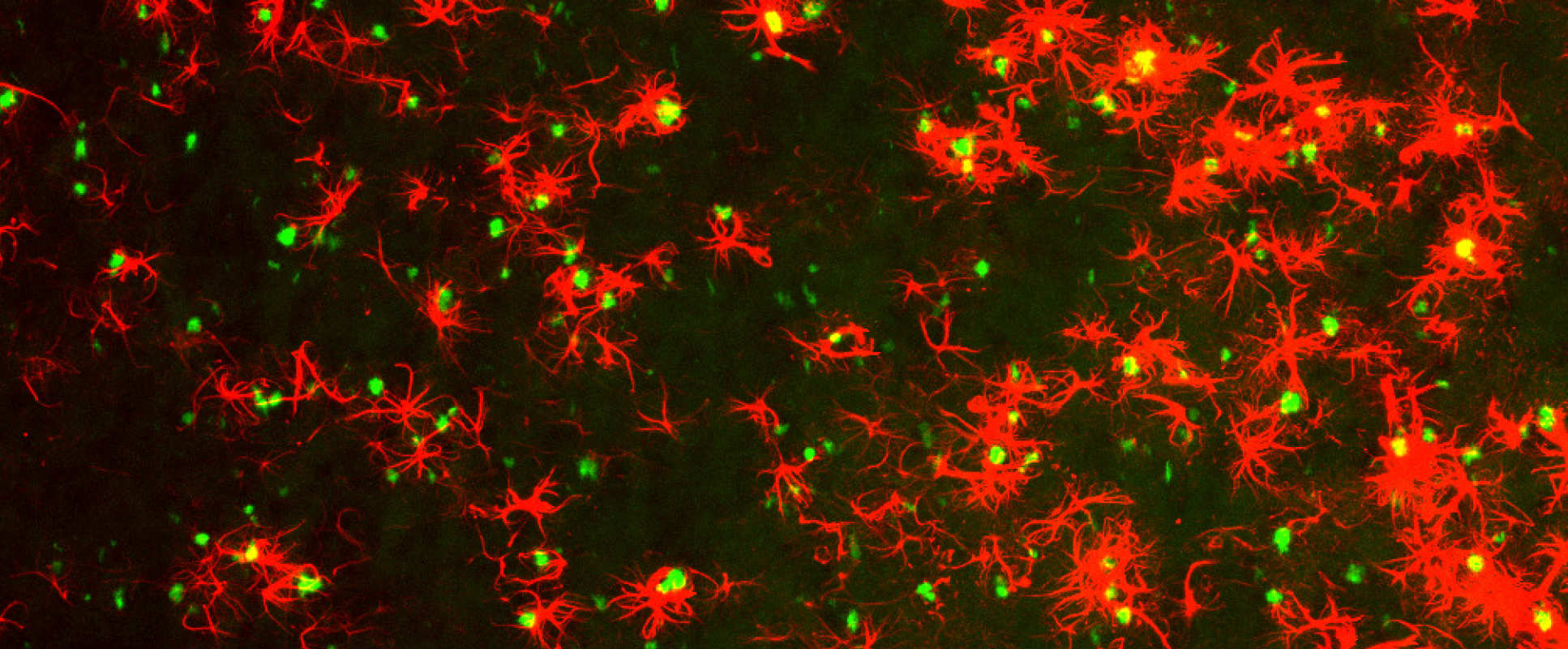
(Image courtesy of Professor Steve Gentleman, Imperial College London)
The focus of the Matthews laboratory is on characterising and testing mechanisms leading to early neuronal dysfunction or loss in early Alzheimer’s disease (AD). Our first aim is characterise and better define neuronal sub-types with enhanced vulnerability in AD. AD shows regional progression in the brain over time and, within each region, there is a strikingly differential involvement of different sub-types of neurons. We will discover evidence for major mechanisms of vulnerability and develop testable hypotheses for therapeutic targets that could enhance neuronal resilience that could delay or prevent clinical expression of AD. This work is intended first to better define the concept of the “vulnerable neurone”.
In parallel, we will explore mechanisms responsible for the selective neuronal vulnerability by study of brain tissue from specific higher effect size genetic risk variant carriers. A fundamental question is whether different genetic variants associated with AD describe aspects of mechanisms common across all of the disease or whether they define different mechanisms and potentially partially distinct patterns of neuronal vulnerability. We will test this through the characterisation of selective neuronal vulnerability and potential mechanisms responsible across specific genetic variants associated with increased disease risk.
Finally, mechanistic hypotheses derived from studies of human tissues will be tested in vitro. We will begin to test mechanisms hypothesised based on the observational studies in post mortem tissues in vitro using iPSC-derived cells. We will complement these with selected co-culture models. Together these will be used to provide systems for exploration of potential specific diagnostic markers and novel therapies.
Key objectives and contact for lead
Key objectives
The key objectives of this research programme are to:
- characterise molecular pathways activated in microglia with early neuronal network dysfunction in preclinical models of amyloid and tau brain pathology and in Alzheimer’s disease
- define chemical signals mediating interactions between glia and neurons at this early stage of pathology
- test for modulation of the microglial phenotype by neuronal activity
Enquiries
Please address enquiries about this programme to:
Personal Assistant to Professor Paul Matthews
Siobhan Dillon
PA-PMM@Imperial.ac.uk

